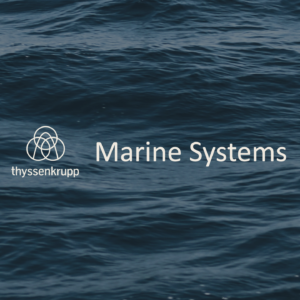
Hélène (Trehin) Isermeyer
Managing Partner
Slightly obsessed with circular things from my race bike to the Circular Economy
If you think the ocean isn't important, imagine Earth without it. Mars comes to mind. No ocean, no life support system.
No blue. No green.Sylvia Earle
Many talk about the Blue Economy and the sustainable growth of the marine and maritime sectors to harness the untapped potential of oceans, seas and coasts as drivers for the green economy. At the crossroads of many industries and interests, an ocean of opportunities lies ahead.
With the largest volumes of international trade in goods shipped by sea, and yet a relatively lower environmental impact associated to it, harbours and shipping companies are facing intense pressures to further decarbonise their operations.
Beyond its own operations, the Maritime Industry is also recognised a major enabler for the energy transition and a lever to further decarbonise other sectors.
With the largest volumes of international trade in goods shipped by sea, and yet a relatively lower environmental impact associated to it, harbours and shipping companies are facing intense pressures to further decarbonise their operations.
Beyond its own operations, the Maritime Industry is also recognised a major enabler for the energy transition and a lever to further decarbonise other sectors.
Ever wondered what happens to big cargos and smaller fishing boats at the end of their lifespan? Or how are the dredging sediments and hazardous materials are being managed considering the volumes extracted every year?
Harbours as well as shipping companies are facing stringent regulations in this regard, requiring fast adaptation of their facilities and operations, on and off-shore.
Ever wondered what happens to big cargos and smaller fishing boats at the end of their lifespan? Or how are the dredging sediments and hazardous materials are being managed considering the volumes extracted every year?
Harbours as well as shipping companies are facing stringent regulations in this regard, requiring fast adaptation of their facilities and operations, on and off-shore.
Ports and ships need vast amounts of energy for cargo-handling equipment, ground transport, electricity generation, and vessel propulsion. If the maritime industry was its own country, it would rank sixth on the list of largest GHG emitters.
It also accounts for 9% of sulfur oxides (SOx) and 18% of nitrogen oxides (NOx) emissions annually. Due to the natural confluence of multi-modal activities, harbours often experience higher concentrations of GHG emissions.
Ports and ships need vast amounts of energy for cargo-handling equipment, ground transport, electricity generation, and vessel propulsion. If the maritime industry was its own country, it would rank sixth on the list of largest GHG emitters.
It also accounts for 9% of sulfur oxides (SOx) and 18% of nitrogen oxides (NOx) emissions annually. Due to the natural confluence of multi-modal activities, harbours often experience higher concentrations of GHG emissions.
Many talk about the Blue Economy and the sustainable growth of the marine and maritime sectors to harness the untapped potential of oceans, seas and coasts as drivers for the green economy. At the crossroads of many industries and interests, an ocean of opportunities lies ahead.
With the largest volumes of international trade in goods shipped by sea, and yet a relatively lower environmental impact associated to it, harbours and shipping companies are facing intense pressures to further decarbonise their operations.
Beyond its own operations, the Maritime Industry is also recognised a major enabler for the energy transition and a lever to further decarbonise other sectors.
Ever wondered what happens to big cargos and smaller fishing boats at the end of their lifespan? Or how are the dredging sediments and hazardous materials are being managed considering the volumes extracted every year?
Harbours as well as shipping companies are facing stringent regulations in this regard, requiring fast adaptation of their facilities and operations, on and off-shore.
Ports and ships need vast amounts of energy for cargo-handling equipment, ground transport, electricity generation, and vessel propulsion. If the maritime industry was its own country, it would rank sixth on the list of largest GHG emitters.
It also accounts for 9% of sulfur oxides (SOx) and 18% of nitrogen oxides (NOx) emissions annually. Due to the natural confluence of multi-modal activities, harbours often experience higher concentrations of GHG emissions.


No matter where you are at the moment or where you want to be – whether your aim is to simply comply with environmental regulations or you are looking for a detailed plan to achieve your environmental sustainability targets and reposition your brands as a key contributor to the world decarbonisation – we have something for you.

Managing Partner
Slightly obsessed with circular things from my race bike to the Circular Economy

Managing partner
The virtue of moderation is the real boldness

Consultant & Env. Policy Regulations Expert
A good understanding makes concrete and positive action possible
Lil text

Managing Partner
Slightly obsessed with circular things from my race bike to the Circular Economy

Managing partner
The virtue of moderation is the real boldness

Consultant
Passionate about glassy water and perfect waves

We embarked on a 6-month mission with thyssenkrupp Marine Systems. This journey began with a Double Materiality Assessment, a crucial step in identifying material ESG issues to be included in the inaugural thyssenkrupp Marine Systems sustainability report based on ESRS standards.
By sending your name and E-mail you accept to be contacted by one of our experts.

Proud to announce we are serious about the climate emergency and committed to reach net zero emissions before 2050.
#UnitedNations #RacetoZero
Join us on our Race to Zero
eolos | engineering the future® and its logo is a registered trademark of eolos GmbH. All Rights Reserved
Design for Circularity and its logo is a registered trademark of eolos GmbH. All Rights Reserved
eolos GmbH – Rosenthaler Str. 33, 10178 Berlin, Germany – Amtsgericht Berlin Charlottenburg – HRB 207 570B
You can reach out to us directly on LinkedIn, we’re active and ready to chat
By sending your name and E-mail you accept to be contacted by one of our experts.